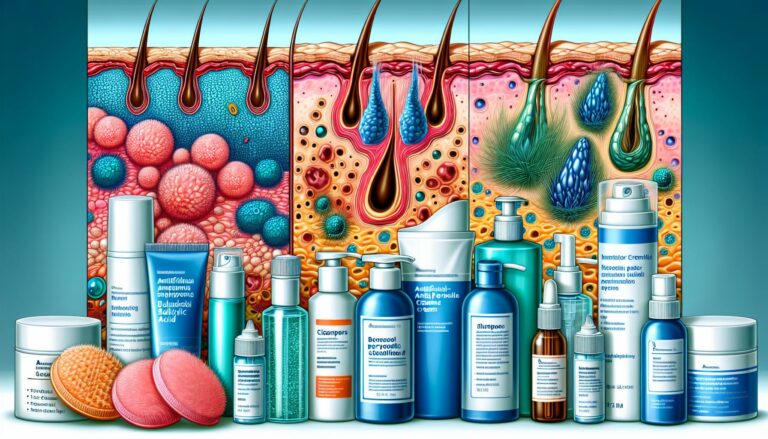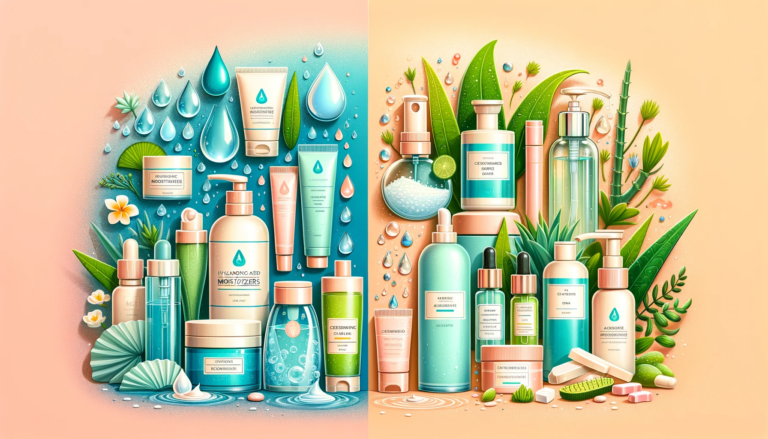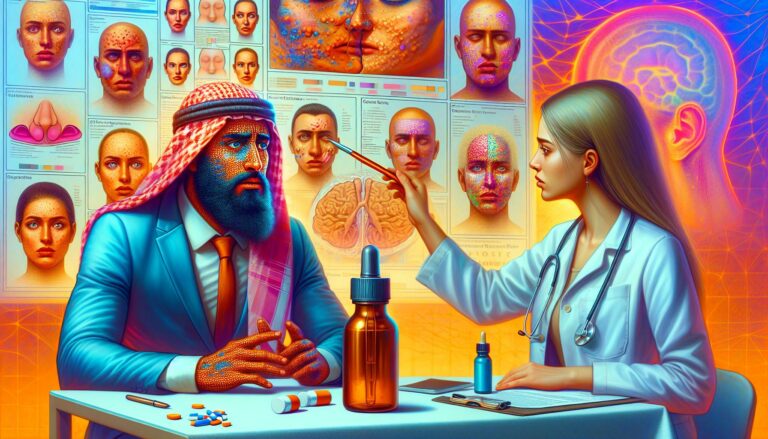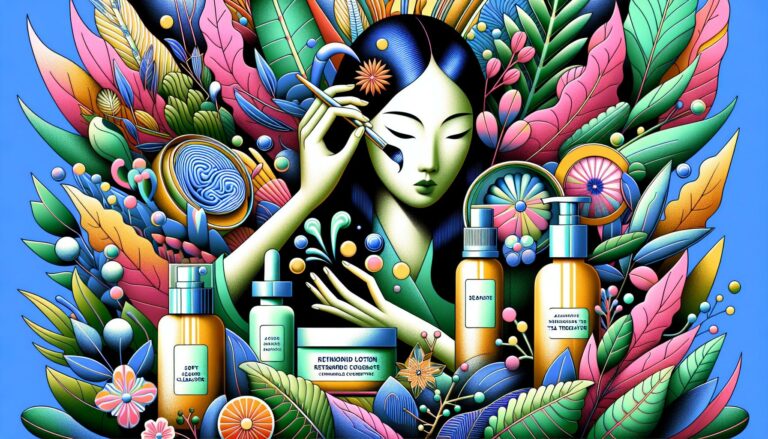Undereating & Acne
Is skipping meals contributing to your acne flare-ups?
While the link between diet and skin health is widely acknowledged, the conversation rarely touches on how undereating might be affecting your complexion.
The relationship between insufficient nutrition and acne is multifaceted, involving hormonal imbalances, nutritional deficiencies, and stress responses, all of which can impact your skin.
Well, we’ll be going over:
- How does undereating disrupt hormonal balance and contribute to acne?
- What are the key nutrient deficiencies linked to acne, and how can they be addressed?
- Can managing your diet and stress effectively reduce acne caused by undereating?
Let’s dive in.

The Link Between Diet and Acne
Understanding the connection between what you eat and your skin’s health is pivotal in managing acne. Research indicates a significant link between diet and the development or exacerbation of acne. This relationship hinges on how certain foods affect your body’s hormonal balance and inflammatory processes.
Foods with a high glycemic index, such as white bread, sugary drinks, and processed snacks, can spike your blood sugar levels. This spike prompts the body to produce more insulin, leading to increased sebum production and, consequently, acne. Similarly, dairy products are known to stimulate insulin growth factors, which might worsen acne conditions.
On the other hand, a diet rich in fruits, vegetables, lean proteins, and whole grains can mitigate inflammation and support skin health. Omega-3 fatty acids, found in fish and flaxseeds, are particularly beneficial for reducing inflammation and potentially improving acne symptoms.
It’s not just about what you’re eating but also whether you’re eating enough. Undereating can disrupt hormonal balance and stress mechanisms, creating an environment conducive to acne. Ensuring you’re consuming a balanced diet is key to not only maintaining overall health but also supporting clear skin.
Hormonal Changes and Acne
When you don’t eat enough, your body responds by altering hormone levels to conserve energy. This disruption can lead to an increase in androgens, male hormones present in both men and women. Elevated androgen levels stimulate the oil glands in your skin, leading to increased sebum production. Excess sebum can clog your pores, creating the perfect environment for acne-causing bacteria to thrive.
Furthermore, undereating can reduce insulin-like growth factor (IGF-1) and increase corticotropin-releasing hormone (CRH) levels. Both changes can have direct and indirect effects on your skin’s health. Reduced IGF-1 may impair skin barrier function, making it more susceptible to acne. On the other hand, higher CRH levels can increase oil production and inflammation, both key players in acne development.
To mitigate these hormonal fluctuations, it’s crucial to maintain a balanced diet. Consuming sufficient quantities of key nutrients supports hormonal equilibrium, potentially reducing the occurrence and severity of acne.
Nutrient Deficiencies and Acne
When you’re not eating enough, you’re not just affecting your energy levels—you’re also potentially impacting your skin health. Nutrient deficiencies, particularly those of zinc, vitamins A and D, and omega-3 fatty acids, can play a significant role in the development of acne. Each of these nutrients plays a crucial role in maintaining healthy skin function and appearance.
Zinc is known for its anti-inflammatory properties and ability to reduce acne-causing bacteria. A lack of zinc in your diet might lead to increased acne severity. On the other hand, vitamins A and D help in skin cell turnover and immune function, respectively. Without adequate amounts, your skin might struggle to repair itself and fend off bacteria effectively.
Omega-3 fatty acids, found in fish and flaxseeds, are vital for managing inflammation throughout the body, including the skin. Insufficient omega-3 intake can result in higher levels of inflammation and exacerbate acne symptoms.
Integrating a diet rich in these nutrients can not only support your overall health but also aid in managing and potentially reducing acne flare-ups. However, remember that balance is key—excessive intake of certain vitamins, such as vitamin A, can be harmful.
Eating a well-balanced diet is crucial for preventing nutrient deficiencies that could otherwise trigger or worsen acne. Consider incorporating foods like leafy greens, nuts, fatty fish, and sweet potatoes into your meals to bolster your nutrient intake.
The Role of Insulin and Acne
When delving into how undereating affects acne, it’s essential to understand the role of insulin. Insulin is a critical hormone that regulates your blood sugar levels. When you’re not eating enough, your body’s insulin response can get thrown off balance. This imbalance can lead to fluctuations in blood sugar levels, which may exacerbate acne.
Eating a balanced diet helps maintain stable insulin levels, ensuring that blood sugar levels don’t spike. High blood sugar can increase levels of androgens, hormones that stimulate oil production in your skin—a catalyst for acne breakouts. Conversely, undereating can cause low blood sugar, prompting your body to release stress hormones such as adrenaline and cortisol. These stress hormones can also trigger your oil glands, leading to an increase in skin oiliness and a higher risk of acne.
Foods with a low glycemic index (GI) are your allies in maintaining balanced insulin and blood sugar levels. Incorporating whole grains, legumes, and leafy greens into your diet can help mitigate the interplay between insulin levels and acne. It’s about finding a healthy balance that supports your body’s natural functions and contributes to clearer skin.
The Connection Between Stress and Acne
Under the surface of your skin, stress and acne are more connected than you might think. When you’re stressed, your body releases cortisol, a hormone that can throw your whole system off balance. This hormonal shift doesn’t just affect your mood—it also makes its way to your skin. Elevated cortisol levels can lead to increased oil production, which is a prime setting for acne to develop.
Cortisol isn’t the only concern. Stress also triggers a fight or flight response, diverting blood flow and nutrients away from your skin towards more critical organs. As a result, your skin, lacking the necessary nutrients, becomes more susceptible to acne. Plus, stress can slow down the healing process, making it harder for existing acne to clear up.
Moreover, in the midst of stress, you might neglect your skincare routine or adopt habits that can worsen acne, like touching your face more often. It’s crucial to maintain a balanced skincare regimen and manage stress through methods like meditation, exercise, or sufficient sleep to keep acne at bay.
Conclusion
Understanding the link between not eating enough and acne is crucial for your skin health. It’s clear that a balanced diet plays a significant role in maintaining hormonal balance and providing essential nutrients that keep your skin glowing and healthy.
By focusing on incorporating foods rich in zinc, vitamins A and D, omega-3 fatty acids, and low GI options, you’ll not only combat nutrient deficiencies but also manage insulin levels effectively. Remember, managing stress is equally important to prevent cortisol-induced breakouts.
So, ensure you’re eating well and taking care of your mental health to keep acne at bay. Your skin reflects your overall well-being, making it essential to nourish your body from the inside out.






